This weekend I played Dixit, created by Jean-Louis Roubira, a card game where players use their cards illustrated with dreamlike images to match a title suggested by a storyteller player. Then, players attempt to guess which card the storyteller picked. I played an online version with two friends Tulla Bee and Chanty called Tixid, available here: Tixid.
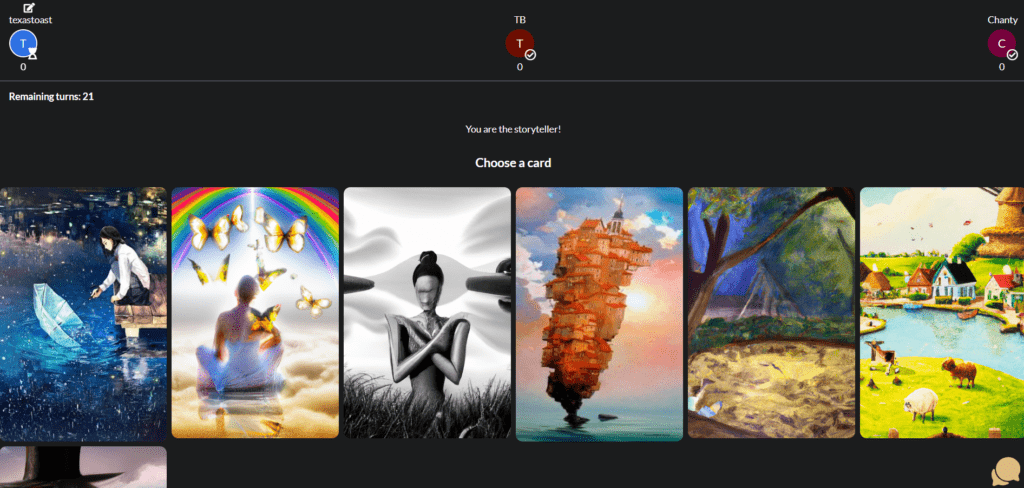
Dixit, a charming and imaginative judging game, intertwines creativity with social dynamics, fostering a unique environment for players to express themselves through abstract storytelling. Through its gameplay mechanics, Dixit not only encourages players to engage in creative expression but also facilitates the exploration of group dynamics and relationships.
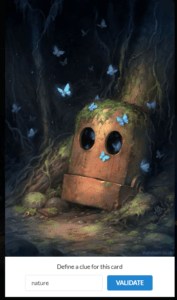
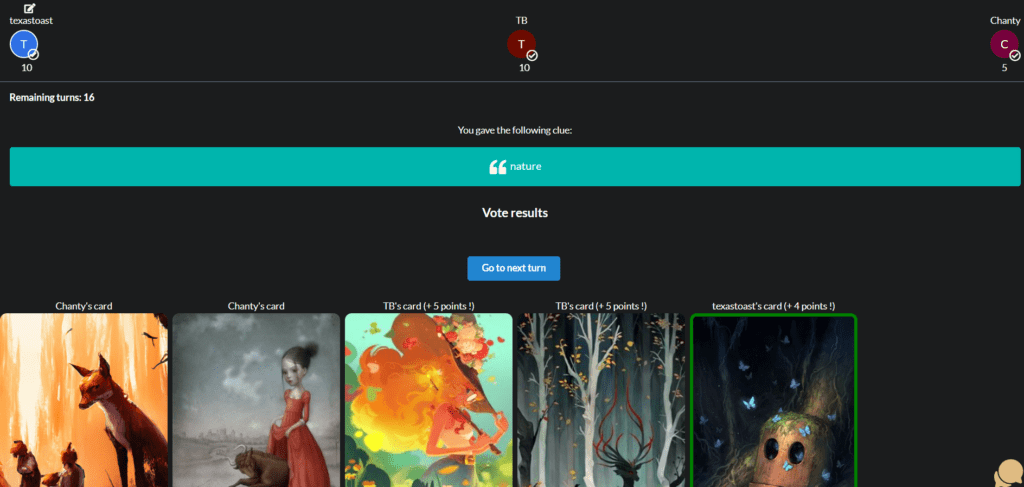
In Dixit, players take turns as the “storyteller,” selecting a card from their hand and providing a cryptic clue or phrase that describes it. The other players then select cards from their own hands that they believe match the clue and submit them anonymously. The storyteller shuffles these cards with their own and reveals them to all players, who then vote on which card they believe belongs to the storyteller. In the online version of the game, the computer handles this step. Points are awarded based on correct guesses, but not just to the storyteller—players who fool others with their submissions also earn points.
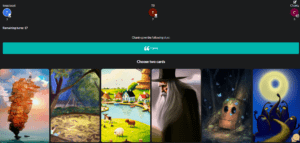
One of the most intriguing aspects of Dixit is how it utilizes the judging mechanic to blur the lines between competition and collaboration. Unlike games where judging can lead to hierarchy or conflict, Dixit’s judging fosters a sense of camaraderie as players strive to create clues that are neither too obvious nor too obscure. This balance encourages players to understand each other’s thought processes and interpretations, thereby strengthening group cohesion and team dynamics. Although there was still competition between players and points awarded, my friends and I were complimenting each other on the cards we picked for prompts and for the prompts we were coming up with. The aesthetics of the cards work with this goal, as their dreamlike appearance influences players to be creative and innovative with their word choice as stories often are.
By the end of our game, all of us had earned points from both proposing cards that others guessed and guessing the correct story card, and we had not devolved into any arguments- something that is rare for judging games in my friend group.
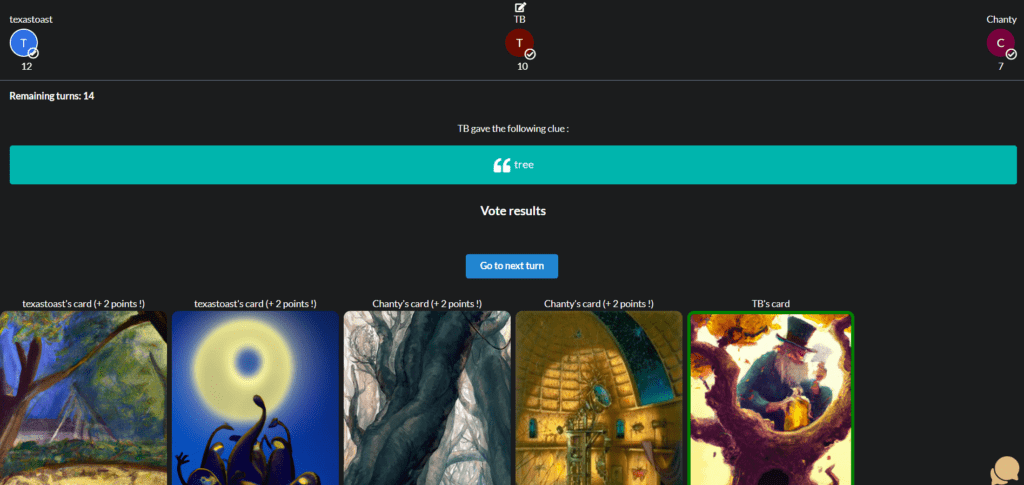
By this point, we were also running out of cards that happened to match the prompts the storyteller was giving and it was becoming easier to guess which card the storyteller proposed.
Comparing Dixit to other judging games like Apples to Apples or Cards Against Humanity highlights its emphasis on imagination and storytelling over humor or shock value. While the latter two games rely on matching cards to fit a judge’s preference for humor or offensiveness, Dixit’s open-ended prompts allow for a wider range of interpretations, sparking creativity and facilitating deeper solutions.
These differences do not mean that this game was not fun, though. There were a few moments during our playthrough where Tulla Bee, Chanthy, and I were laughing uncontrollably; one example is when we realized that the cards for the online version of the game were definitely AI-generated with this card:

Dixit, with its emphasis on creativity and collaboration, transcends the traditional boundaries of judging games, offering players a unique platform for self-expression and social interaction. By embracing the power of imagination, Dixit not only entertains but also enriches relationships and fosters deeper connections among players. I wanted to play this game because my team is creating a storytelling game called Writer’s Block where players create stories themselves; thus, using cards as inspiration for stories is an interesting comparison point to have.



